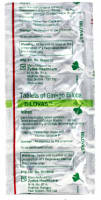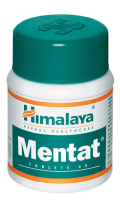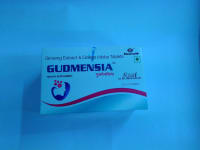NOTICE: unsafe with : Alcohol
USED FOR:
Short term anxiety
COMPOSITION:
Alprazolam (0.5mg)
Therapeutic Uses:
neuro cns

CAUTION
Alarm 0.5mg Tablet may cause excessive drowsiness and calmness with alcohol.

WEIGH RISKS VS BENEFITS
Alarm 0.5mg Tablet is unsafe to use during pregnancy.There is positive evidence of human fetal risk, but the benefits from use in pregnant women may be acceptable despite the risk, for example in life-threatening situations. Please consult your doctor.

CAUTION
Alarm 0.5mg Tablet is probably unsafe to use during lactation. Limited human data suggest that the drug could represent a significant risk to the baby.

Alarm 0.5mg Tablet may make you feel dizzy, sleepy, tired, or decrease alertness. If this happens, do not drive.

Alarm 0.5mg Tablet is probably safe to use in patients with kidney disease. Limited data available suggests that dose adjustment of Alarm 0.5mg Tablet may not be needed in these patients. Please consult your doctor.

CAUTION
Alarm 0.5mg Tablet should be used with caution in patients with liver disease. Dose adjustment of Alarm 0.5mg Tablet may be needed. Please consult your doctor.
Uses of Alarm Tablet
Alarm 0.5mg Tablet is used in the treatment of short term anxiety.
How to use Alarm Tablet
Take this medicine in the dose and duration as advised by your doctor. Swallow it as a whole. Do not chew, crush or break it. Alarm 0.5mg Tablet may be taken with or without food, but it is better to take it at a fixed time.
How Alarm Tablet works
Alarm 0.5mg Tablet is a benzodiazepine. It works by increasing the action of GABA, a chemical messenger which suppresses the abnormal and excessive activity of the nerve cells in the brain.
Common Sleepiness, Slurred speech, Memory impairment, Uncoordinated body movements, Dizziness, Dryness in mouth, Fatigue, Irritability, Constipation, Headache, Depression.
Expert advice for Alarm Tablet
If you are taking Alarm for the treatment of insomnia and anxiety, it should not be used more than 4 weeks. It may become less effective over the time. It causes sleepiness or drowsiness. If this happens to you, do not drive or use machinery. Avoid consuming alcohol when taking the Alarm, as it may cause excessive sleepiness or drowsiness. Inform your doctor if you are pregnant or planning to conceive or breastfeeding. Inform your doctor if you have ever been diagnosed with kidney or liver problems. The addiction / habit-forming potential of Alarm is very high.
Q. What is Alarm used for?
Alarm is used to relieve excess (moderate to severe) anxiety and to treat anxiety associated with depression. It is not to be used for mild anxiety associated with stress of day today life situations.
Q. Is Alarm safe?
Alarm is safe if used at prescribed doses for the prescribed duration as advised by your doctor.
Q. Is Alarm addictive (habit-forming)?
Yes, the use of Alarm has addictive potential. Its use is associated with risk of addiction for physical or psychological effects. The abrupt discontinuation of Alarm is therefore not advised to avoid serious withdrawal symptoms.
Q. Is Alarm an opioid?
No, Alarm is not an opioid, it belongs to a class of substances called benzodiazepines.
Q. Is Alarm an anti-depressant?
No, Alarm is not an anti-depressant. It is used to relieve excess anxiety and to treat anxiety associated with depression.
Q. Is Alarm a narcotic substance?
No, Alarm is not a narcotic substance. It belongs to the class of medicines known as benzodiazepines and is used for the treatment of anxiety.
Q. Can I take Alarm for a hangover?
No, Alarm is not indicated for managing a hangover. Rather, Alarm should not be taken with alcohol as both the substances can cause excessive sleep (sedation) and depress your brain.
Q. Can I take Alarm for anxiety?
Yes, Alarm is used to relieve excess (moderate to severe) anxiety and to treat anxiety associated with depression. It is not recommended for mild anxiety associated with stress of day today life situations.
Q. Can I take Alarm for heart palpitations?
No, Alarm is not indicated for the treatment of heart palpitations. However, it may help in reducing heart palpitations associated with anxiety. Alarm should always be taken only when advised by your doctor.
Q. Can I take Alarm for alcohol withdrawal?
No, Alarm is not indicated for the management of alcohol withdrawal.
Q. Does Alarm reduce blood pressure?
Lowering of blood pressure is seen if you take more than prescribed dose of Alarm. Please consult your doctor if you experience excessive fall in blood pressure while you are taking Alarm.
Q. Does Alarm make you sleepy?
Yes, Alarm makes you sleepy. Sedation (sleepiness) is a very common side effect of Alarm. Please consult your doctor if you are prescribed Alarm and your work requires you to remain alerted or you drive yourself as it may affect your driving.
Q. Does Alarm expire?
Yes, Alarm like any other medicine has an expiry date and should not be used beyond the date mentioned on the package.
Q. Does Alarm cause weight gain?
Change in weight (both weight gain and weight loss) has been reported as a common side effect with Alarm. Please consult your doctor if you experience disproportionate change in weight when you are taking Alarm.
Q. Can the use of Alarm cause hair loss?
It has not been reported to cause hair loss. Talk to your doctor if you experience this while taking Alarm. As it could be due to some other underlying condition.
Q. Can I take Alarm with hydrocodone?
Alarm should not be taken with hydrocodone. Alarm belong to a class of medicines called benzodiazepines and hydrocodone belongs to the class of medicines called opioids. Both the classes cause sedation (increased tenedency to sleep) and respiratory depression (slow and difficult breathing). Please consult your doctor before taking the two medicines together.
Q. Can I take Alarm with paracetamol?
No, interactions have been reported between Alarm and paracetamol. However, this does not mean that no interactions exist. Please consult your doctor before taking the two medicines together.
Q. Can I take Alarm with prednisone?
Prednisolone may increase the metabolism (breakdown) of Alarm and hence decrease the levels of Alarm in the body which may decrease the effect of Alarm and a higher dose may be needed. Please consult your doctor before taking the two medicines together.
Q. Can I take Alarm with clonazepam?
Alarm should not be taken with clonazepam as both the medicines belong to the same class of medicines called benzodiazepines. When taken together, they can cause sedation (increased tenedency to sleep) and respiratory depression (slow and difficult breathing). Please consult your doctor before taking the two medicines together.
Q. Can I take Alarm with oxycodone?
Alarm should not be taken with oxycodone. Alarm belong to a class of medicines called benzodiazepines and oxycodone belong to the class of medicines called opioids. Both the classes cause sedation (increased tenedency to sleep) and respiratory depression (slow and difficult breathing). Please consult your doctor before taking the two medicines together.
Q. Can I take Alarm with tramadol?
Alarm should not be taken with tramadol. Alarm belong to a class of medicines called benzodiazepines and tramadol belong to the class of medicines called opioids. Both the classes cause sedation (increased tenedency to sleep) and respiratory depression (slow and difficult breathing). Please consult your doctor before taking the two medicines together.
Q. Can I take Alarm with ibuprofen?
No, interactions have been reported between Alarm and ibuprofen. However, this does not mean that no interactions exist. Please consult your doctor before taking the two medicines together.
Q. Can I take Alarm with sertraline?
No, interactions have been reported between Alarm and sertraline. However, this does not mean that no interactions exist. Please consult your doctor before taking the two medicines together.
Q. Can I take Alarm with buspirone?
No, interactions have been reported between Alarm and buspirone. However, this does not mean that no interactions exist. Please consult your doctor before taking the two medicines together.
Q. Can I take Alarm for the rest of my life?
No, Alarm should be taken only for a prescribed duration at prescribed doses as advised by your doctor.
Q. Can I take Alarm for pain?
No, Alarm is not indicated for the treatment of any kind of pain. It belongs to the class of benzodiazepines and is indicated for the treatment of anxiety.


 Alarm 0.5mg Tablet
Alarm 0.5mg Tablet  Bookmark
Bookmark




















